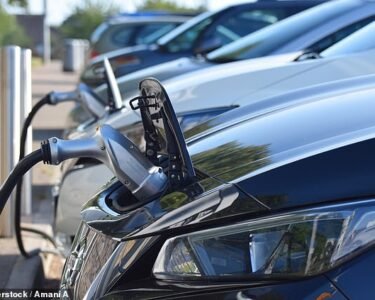Dear Alex,
Why has car insurance gone through the roof over the past few years? I have been told by one source that it’s a result of the high cost of repairing electric cars; another said it was age-related, which seems unfair, as surely younger people are much more likely to have accidents. Is this true?
– WS
Dear WS,
You’re correct that car insurance costs have increased dramatically in recent years. The reason is simple: insurers are having to pay out more. In fact, £9.9 billion was paid out in claims last year – a new record.
Why? Well, there are many reasons, but these are the main ones. Firstly, the cost of repair has risen at a rate above that of inflation for several years. That, combined with the fact that modern cars are more high-tech – and therefore sometimes require more expensive equipment to be replaced as part of the repair – means insurers are having to pay more to fix damaged cars.
So why not just write them off instead? Because the cost of buying replacements has risen, too. Remember the limited supply of cars through the pandemic years? That means two or three-year-old cars are in relatively short supply, which is keeping prices high. So owners of cars that age – which many in the UK are – need greater payouts in order to compensate them for a crash or theft.
Then there’s the fact that the number of cars being stolen has also risen. Between 2022 and 2023, vehicle theft increased by 8 per cent, with thefts from vehicles increasing by 9.9 per cent over the same period.
Thieves are developing new ways to get around modern car security – keyless entry systems that are prone to relay attacks don’t help – and together with a seeming lack of police ability to tackle the issue (only 2.12 per cent of all car thefts from July 2022 to June 2023 led to arrests and charges by police), that has led to thefts going up. Naturally this increases costs for insurers.
What’s more, the style and motive for car theft has changed. Remember the 1990s? Joyriders weren’t exactly discerning about which cars they hot-wired. Cars that were stolen and trashed were cheaper to replace. And, crucially, they were often recovered; when they were, insurers could recoup some of their outlay by scrapping or selling on the car.
Today, however, joyriders are largely a thing of the past – and have been replaced by organised gangs stealing cars to order. It isn’t electric cars they target so much as petrol or diesel cars from premium marques that they can sell abroad with ease. And once cars have left the UK, it’s almost certain they will never be heard from again. Not only are insurers on the hook for the much higher cost of replacing those cars, but they’re also far less likely to recoup any of their payouts.
And, yes, a driver’s age also plays a part – although not in an entirely fair way. Insurers still apply a weighting to older drivers’ premiums, perhaps because the fatality rate for older drivers involved in car accidents is higher (even though this could be because frailty makes them more susceptible to injury in those accidents).
But despite the fact a 2016 study from Swansea University suggested that older drivers were not notably less safe than any other age group, insurers’ complex algorithms see higher risk in older drivers. As a result, the ageing population and increase in numbers of older drivers on the roads will contribute to the rise in premiums.
These are just a few of the reasons. How to get around it? That’s tricky to say – although choosing a non-premium brand with lower repair costs is probably a good start.
For new and used buying guides, tips and expert advice, visit our Advice section, or sign up to our newsletter here
To talk all things motoring with the Telegraph Cars team join the Telegraph Motoring Club Facebook group here




